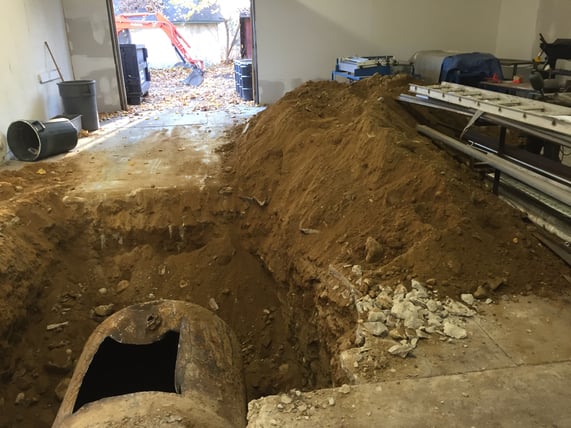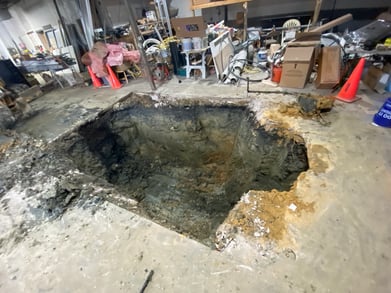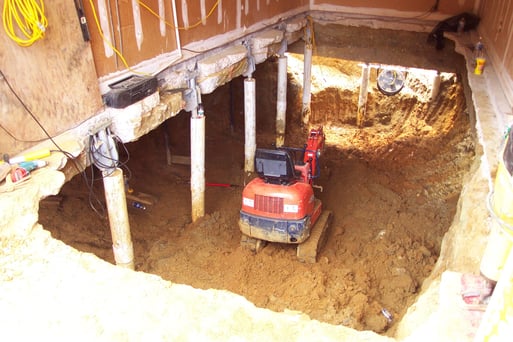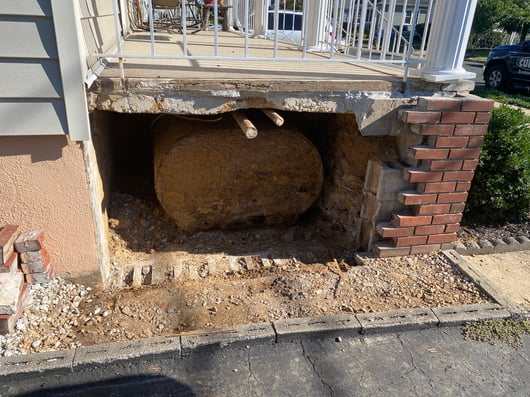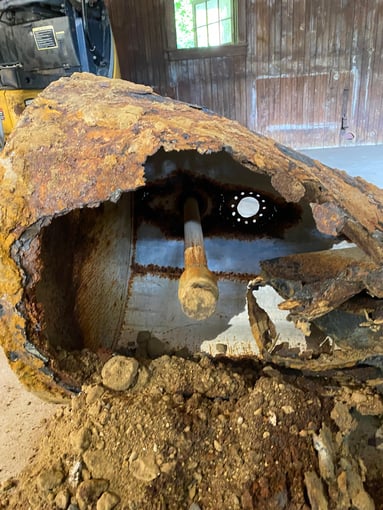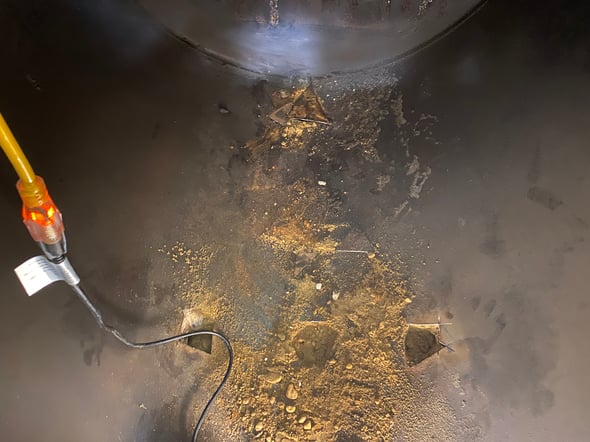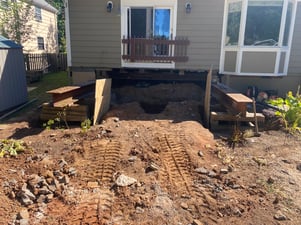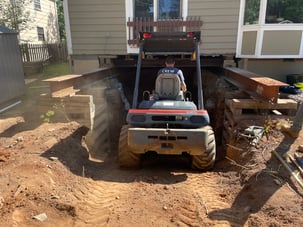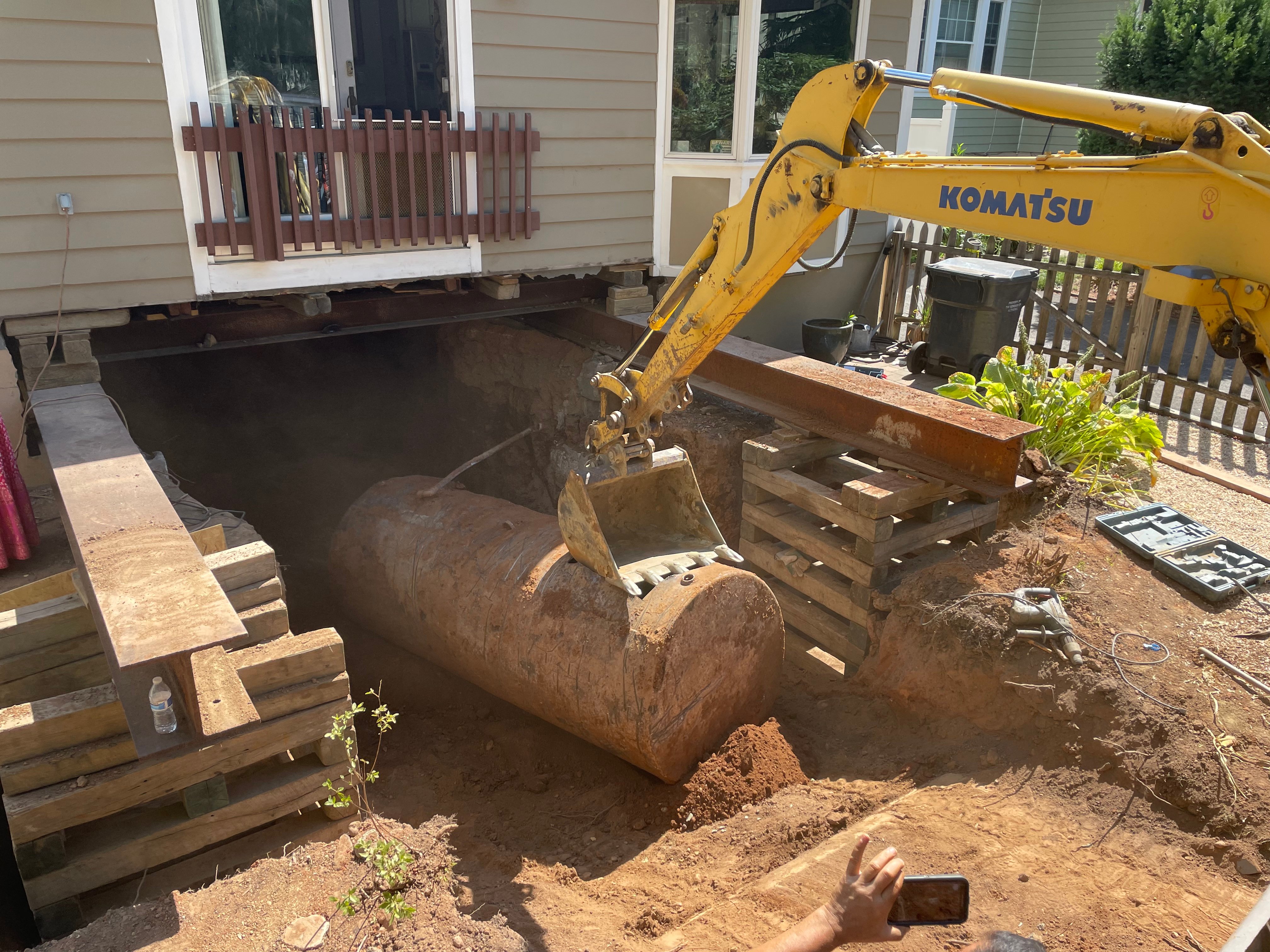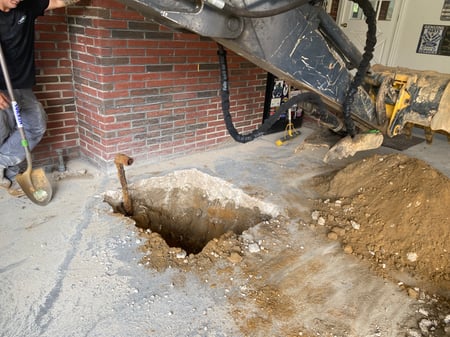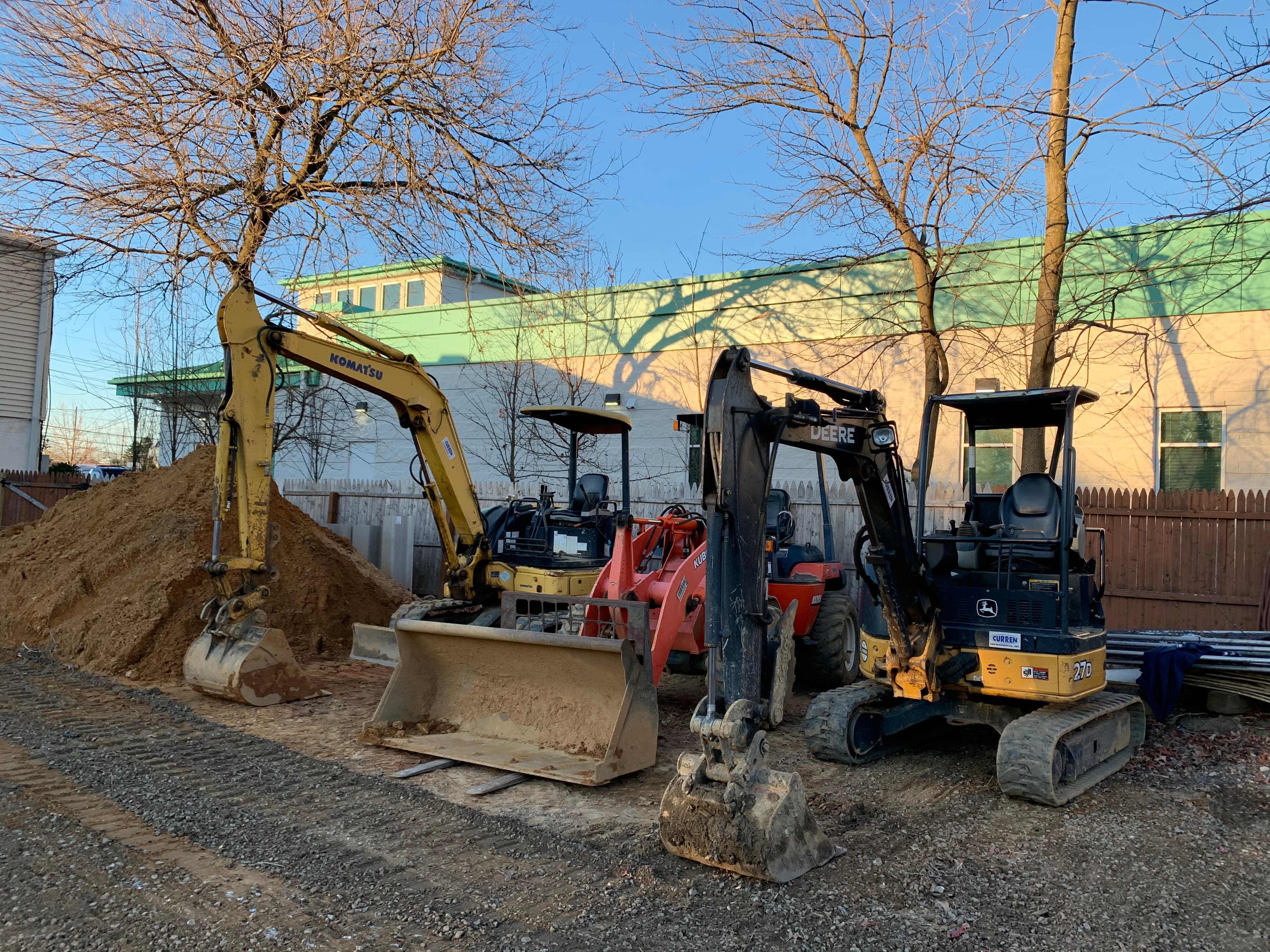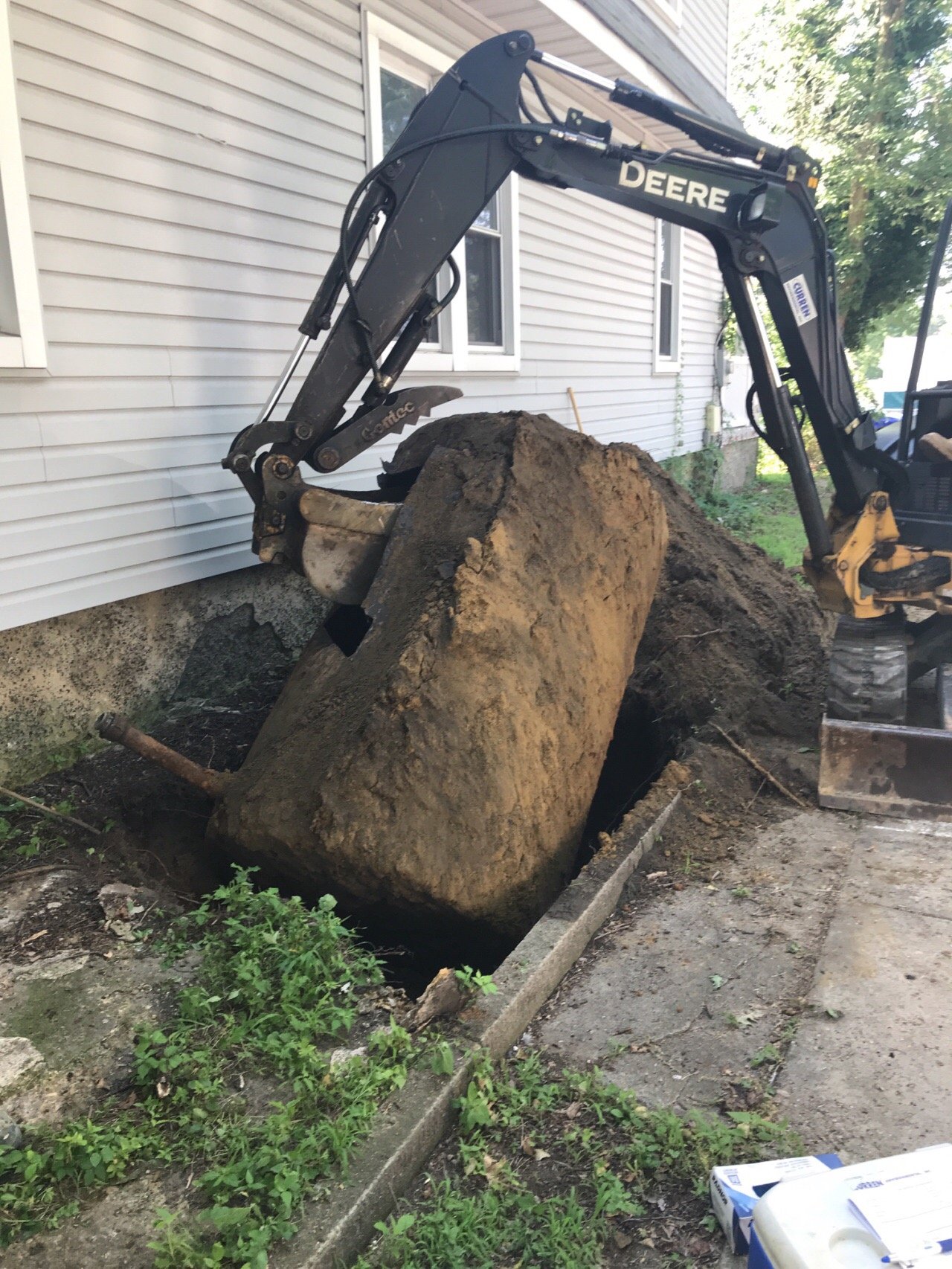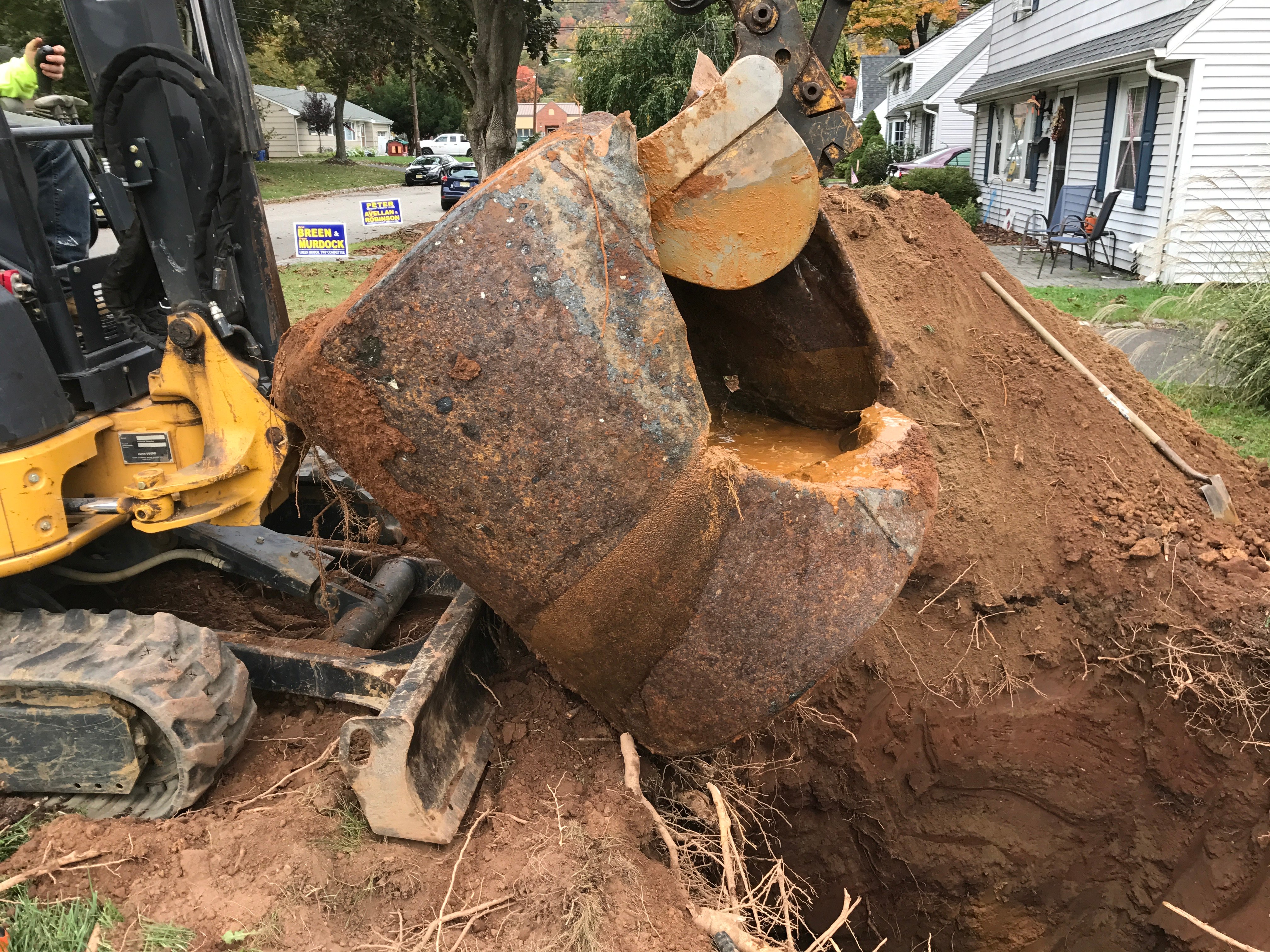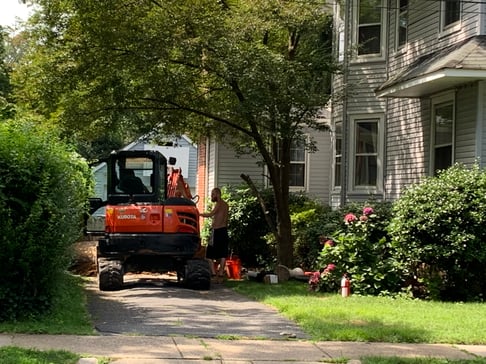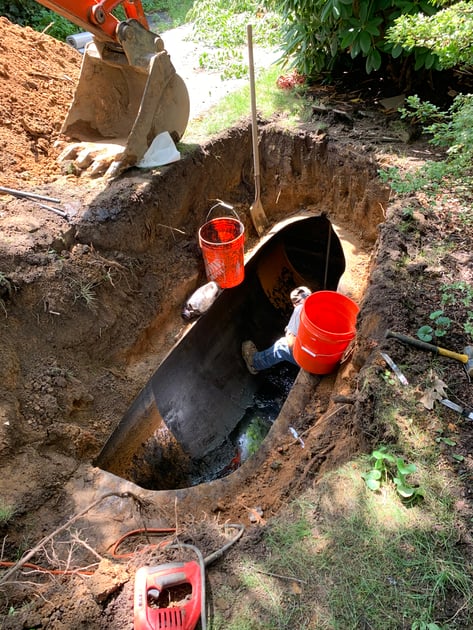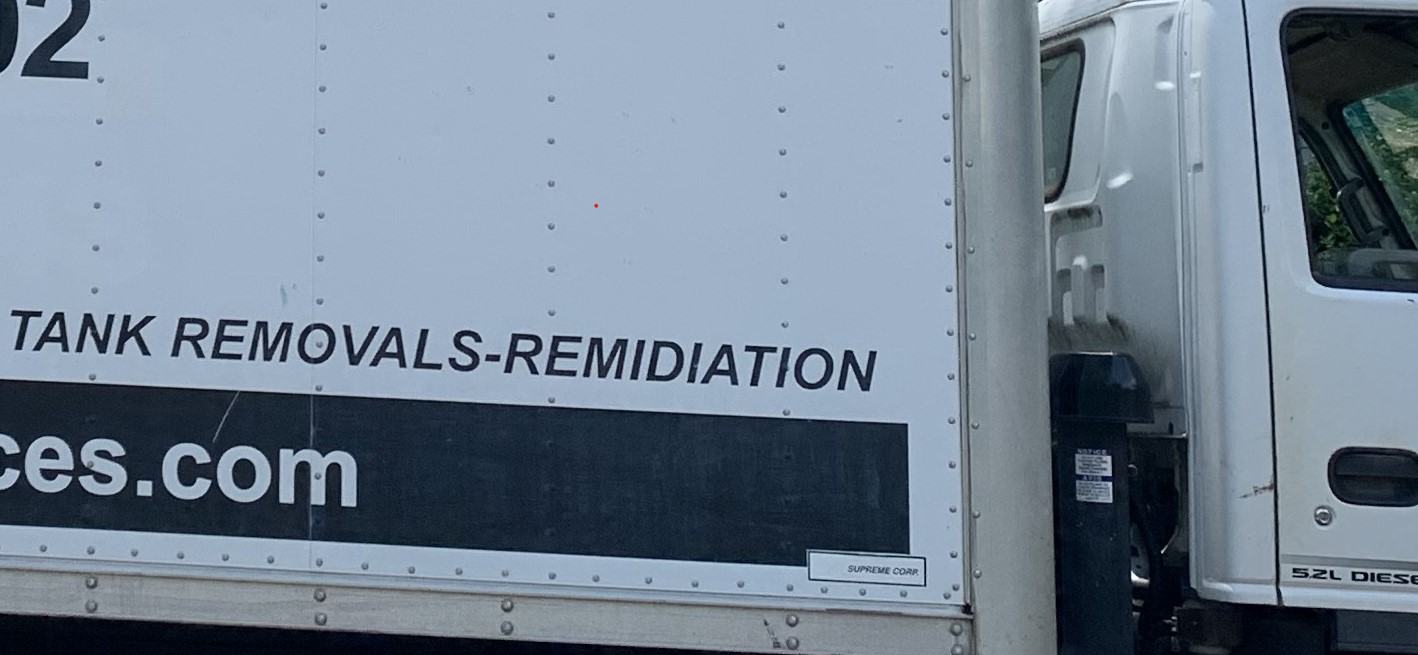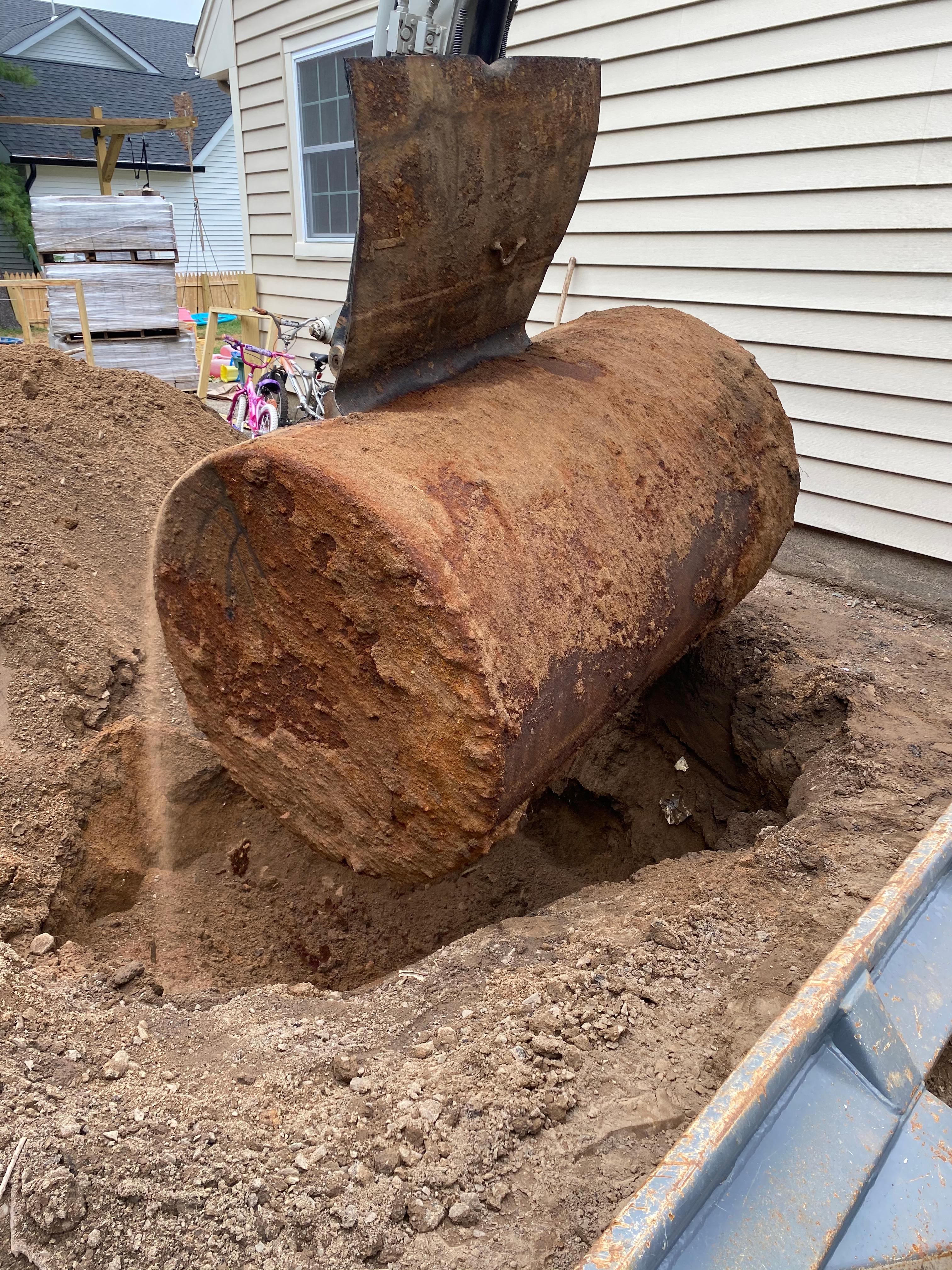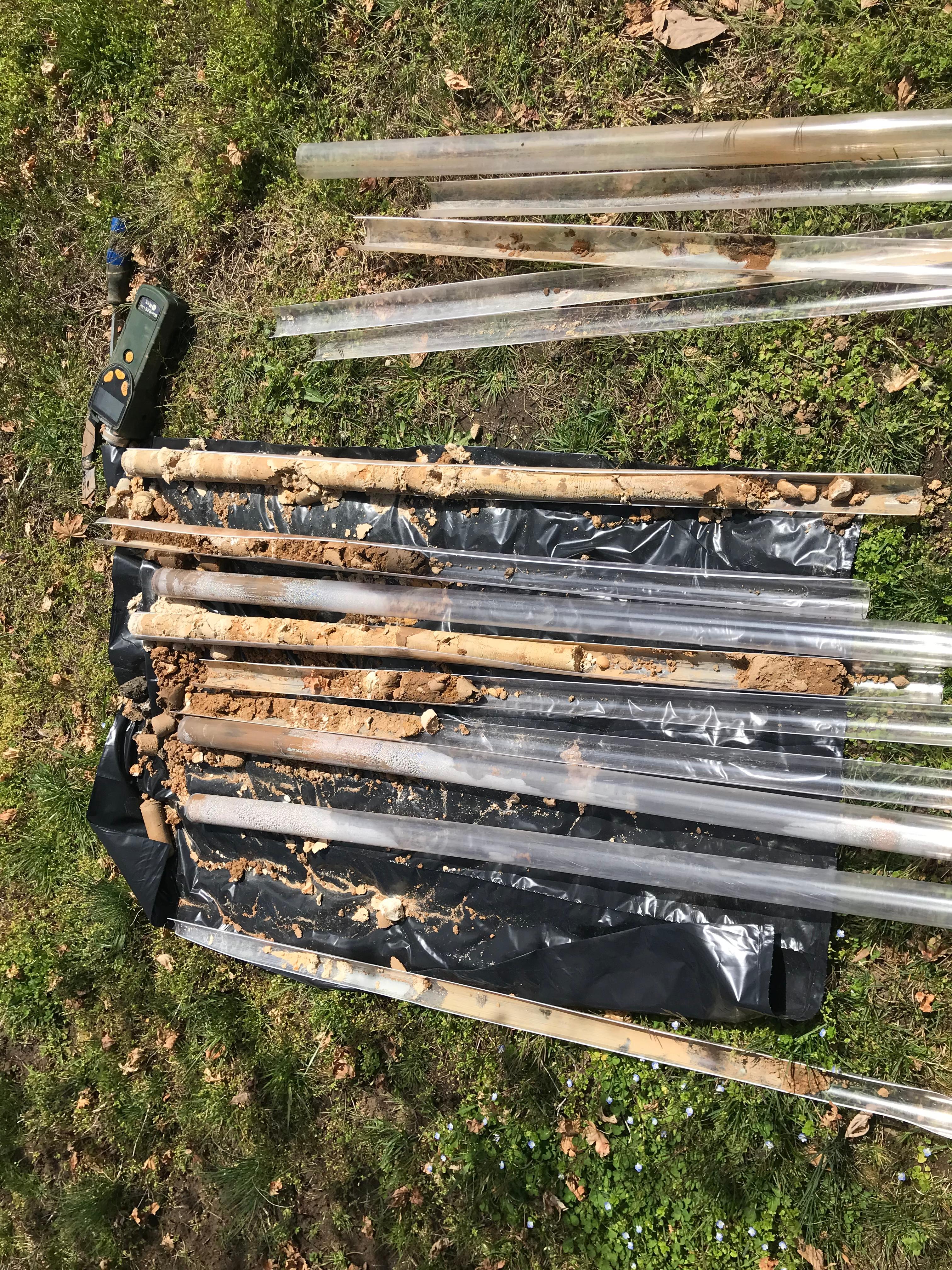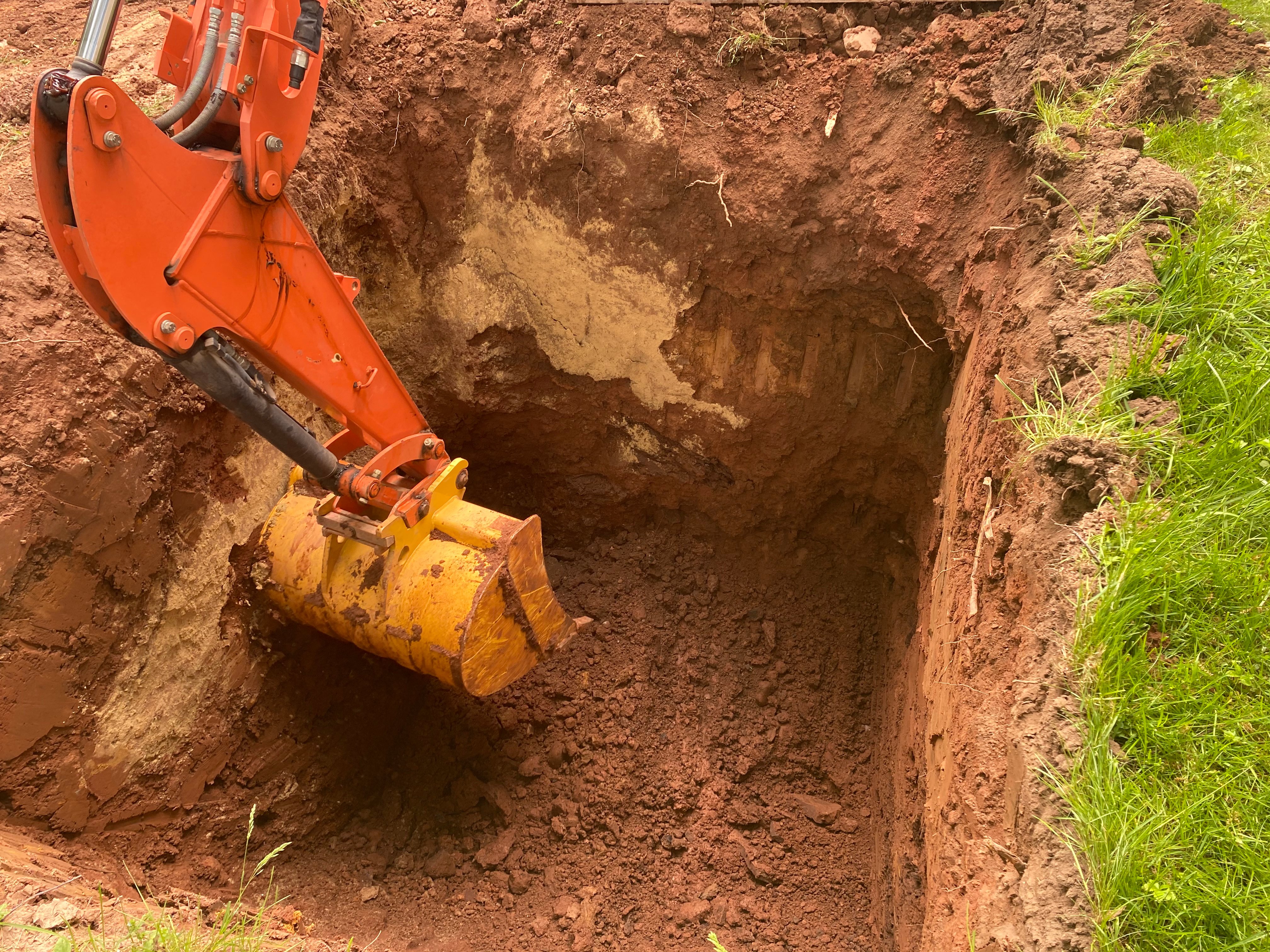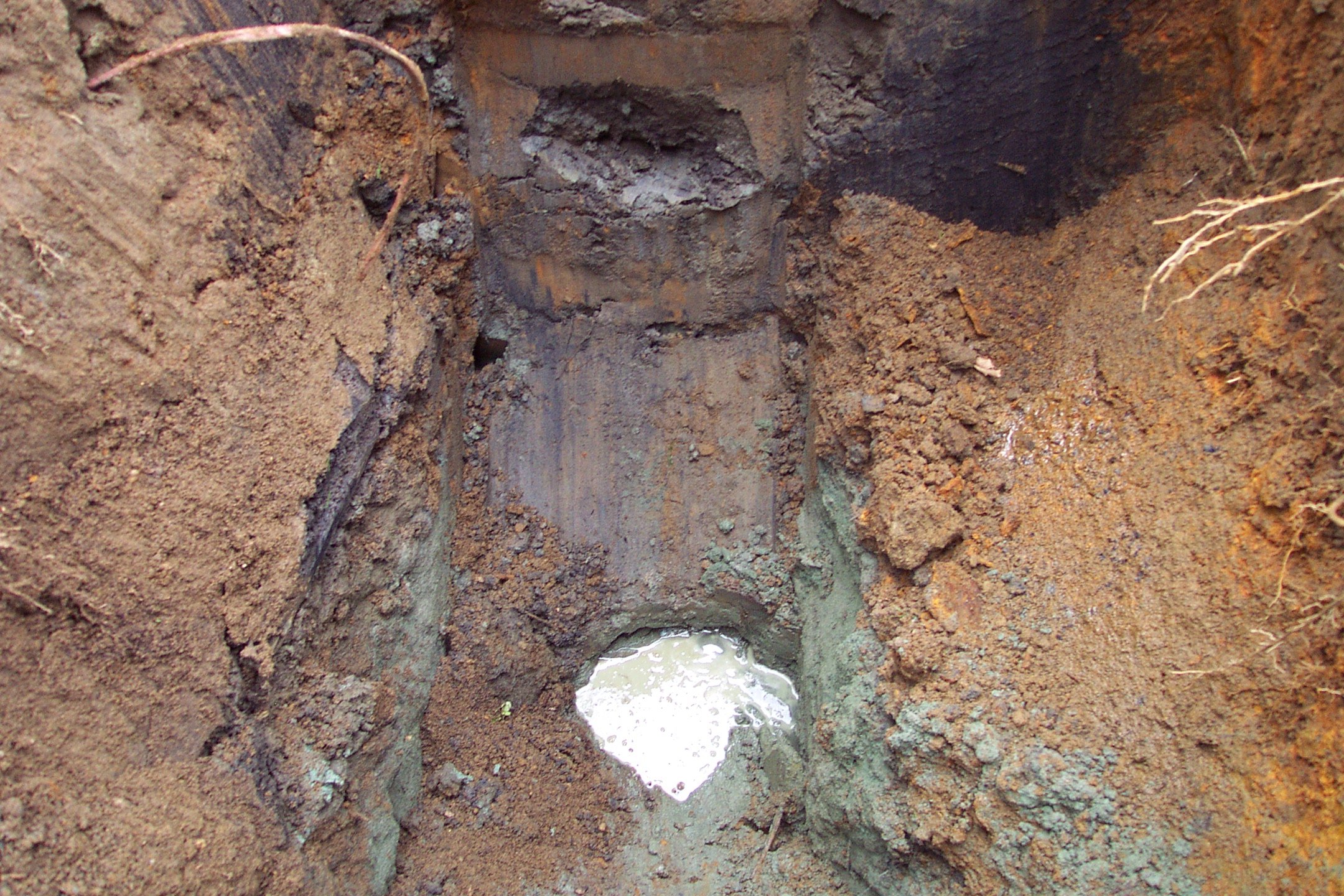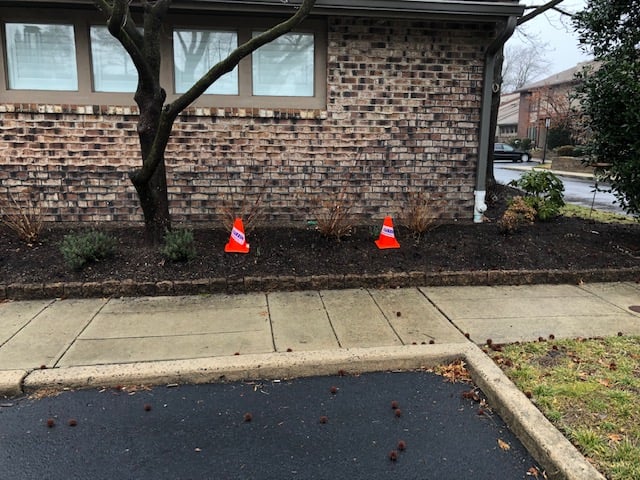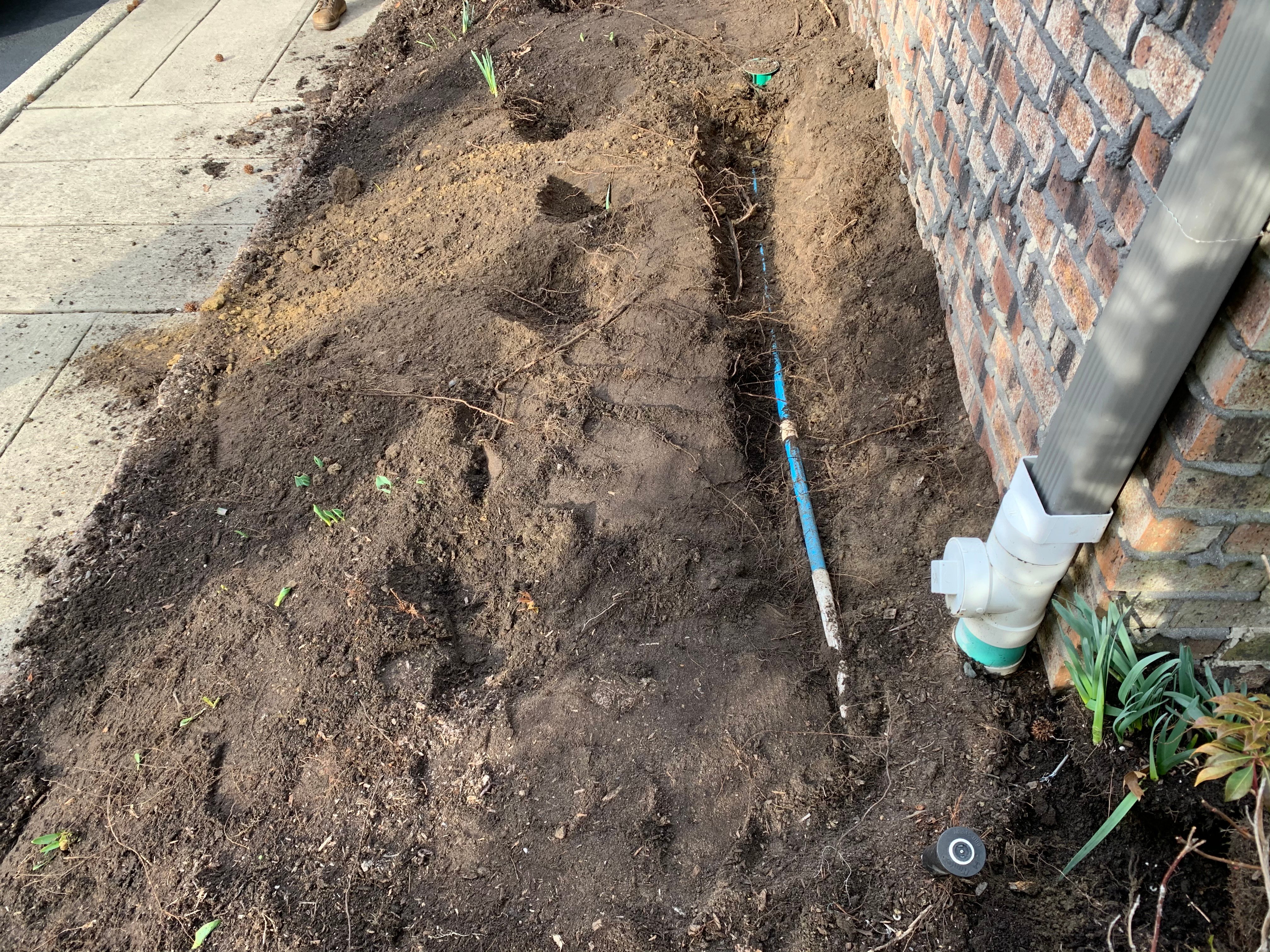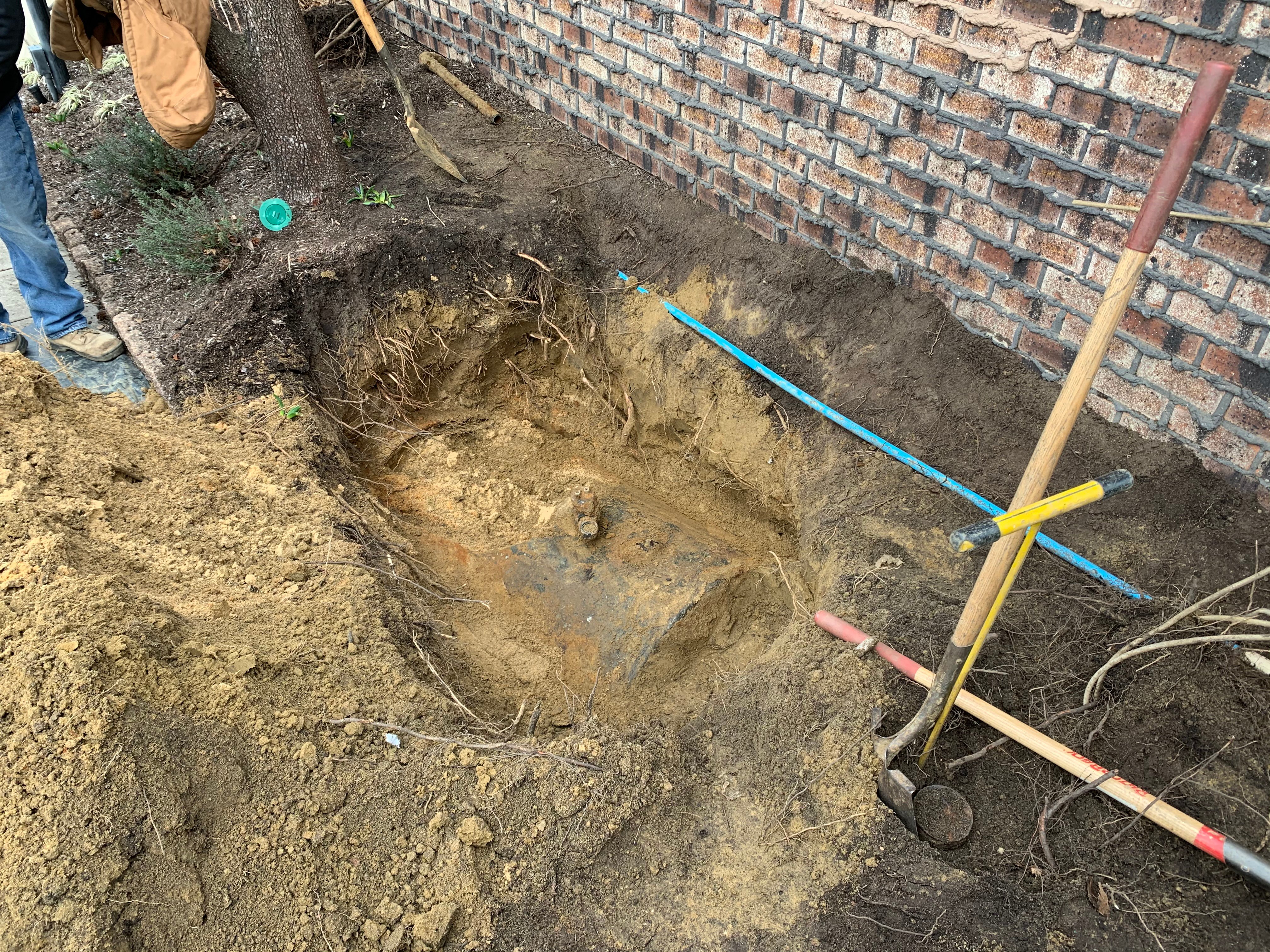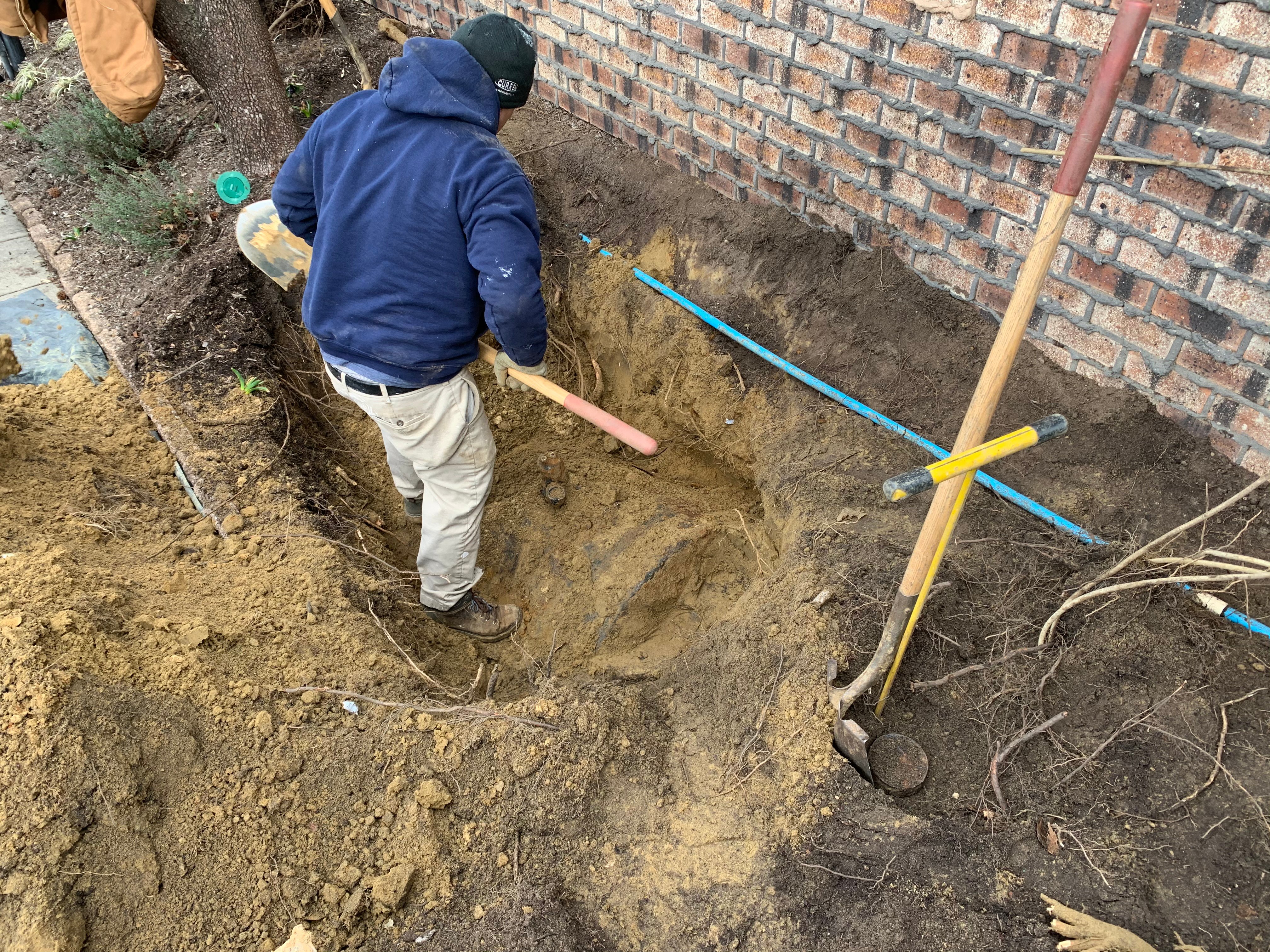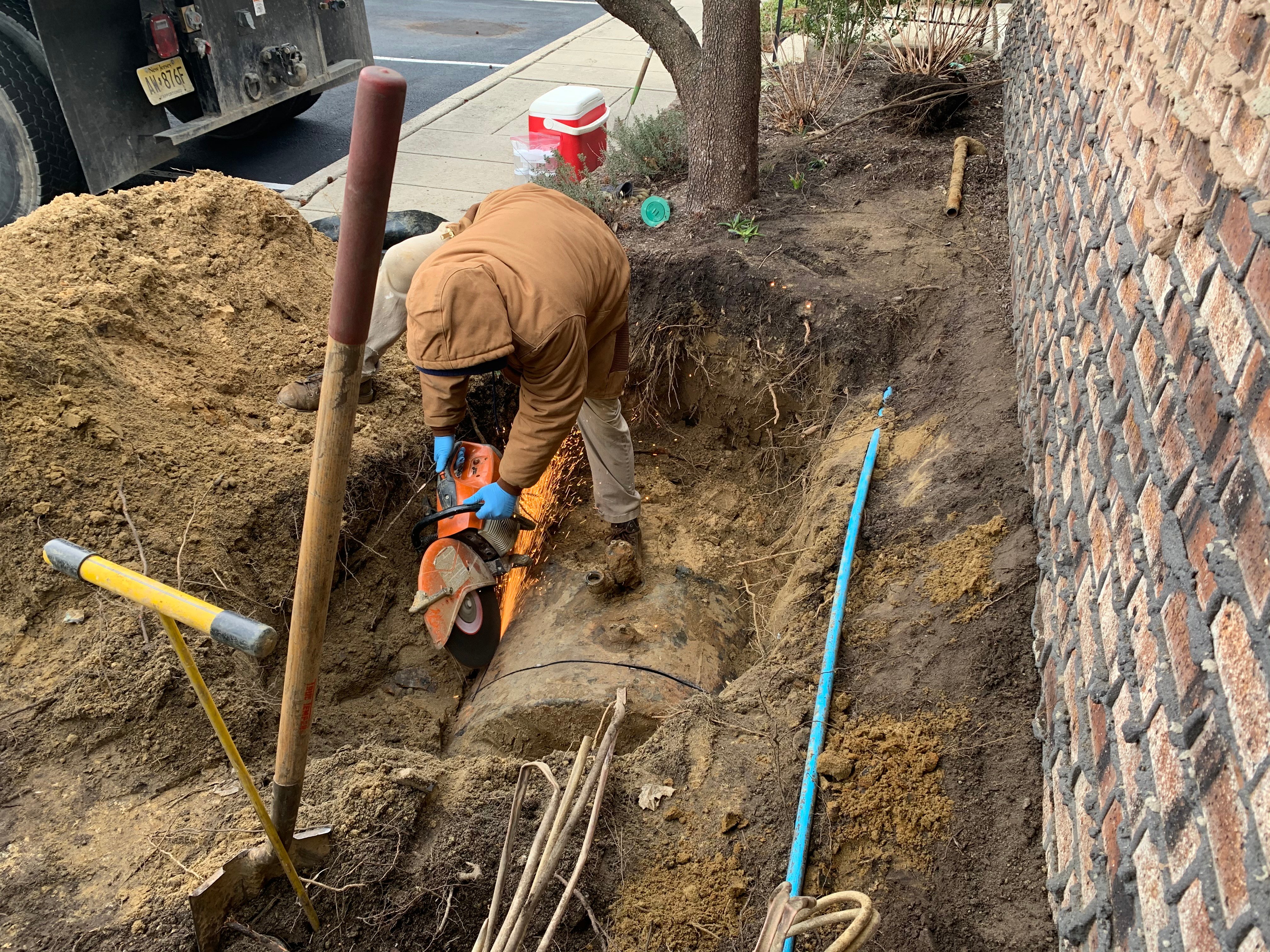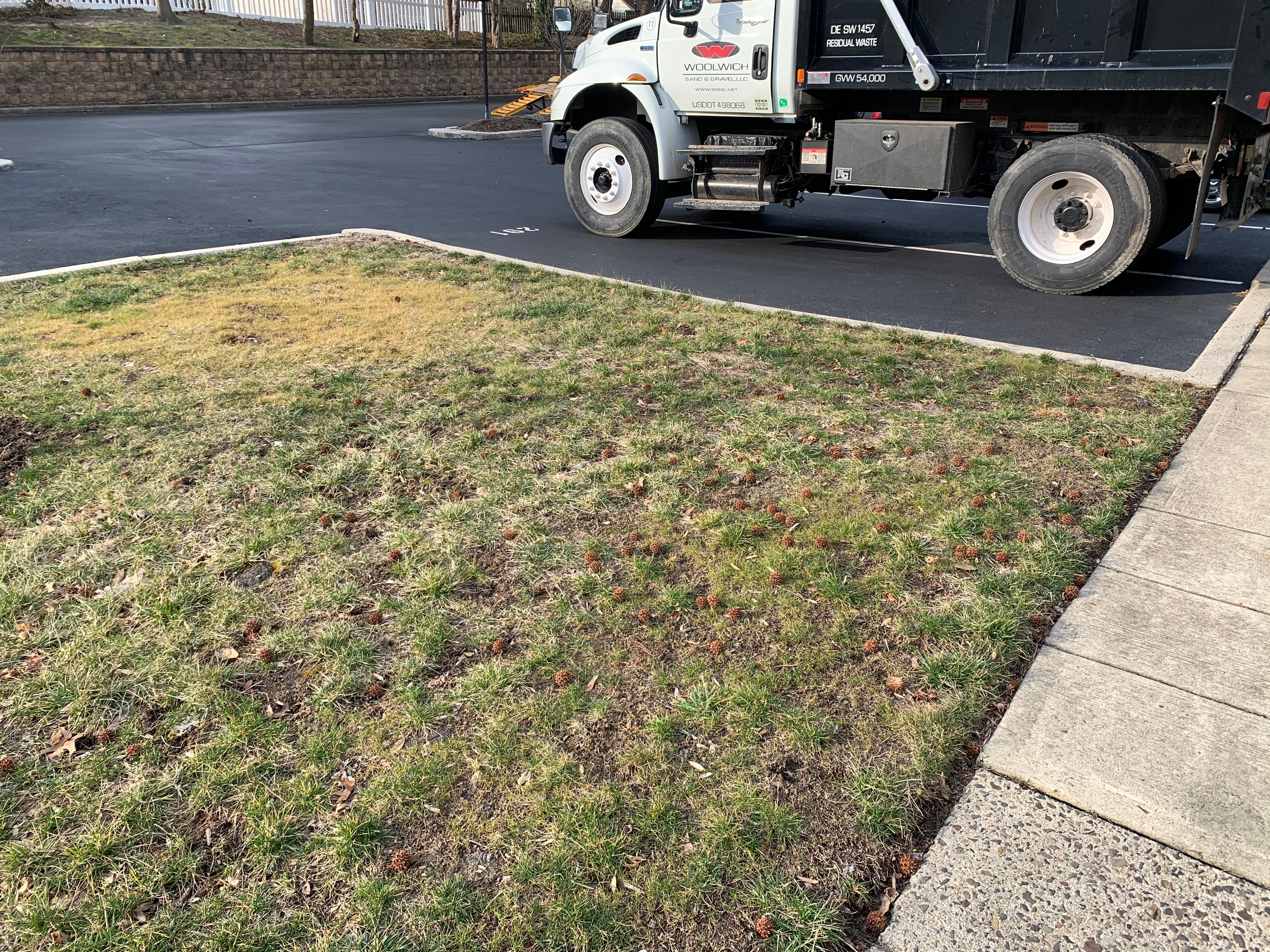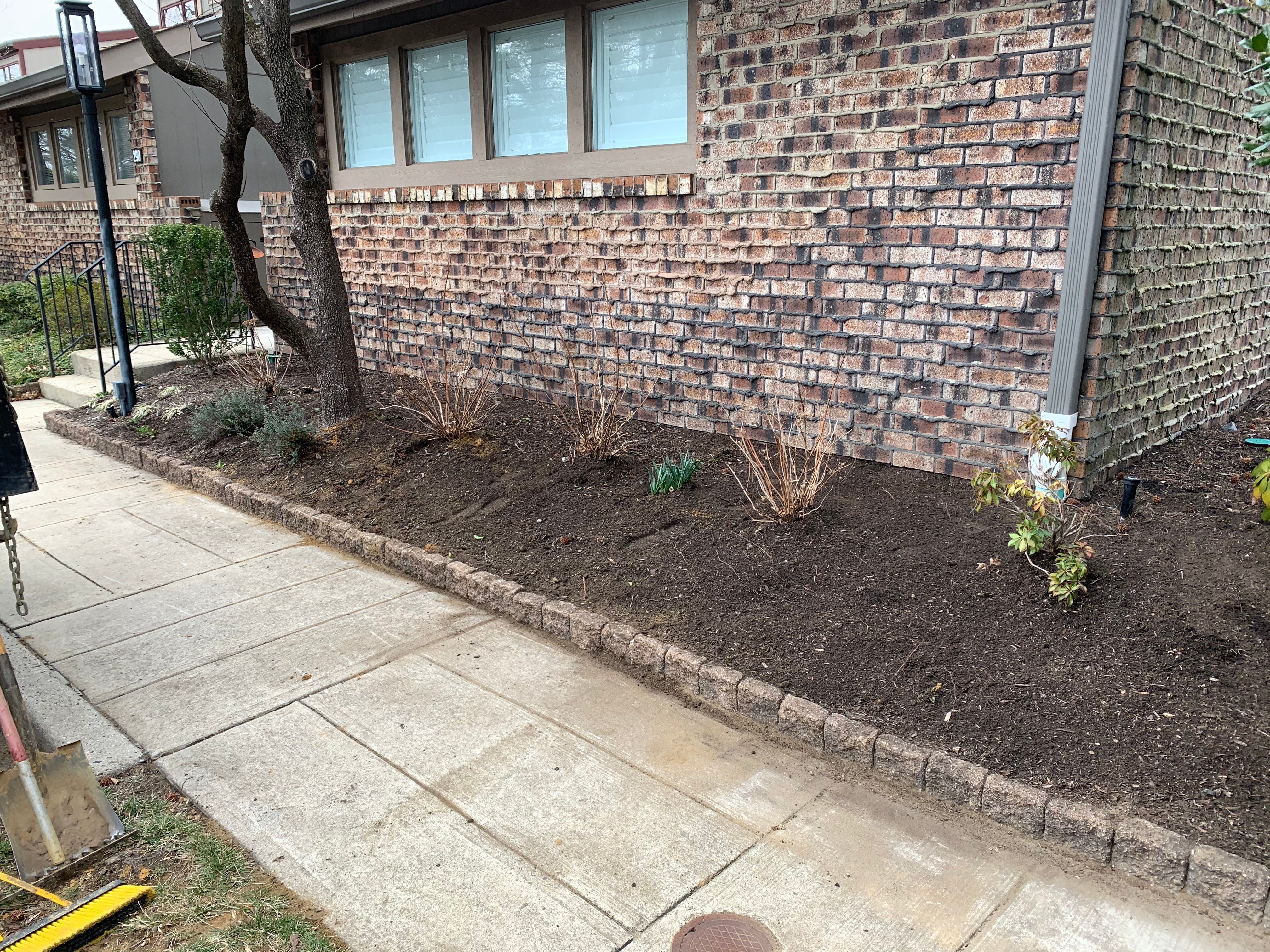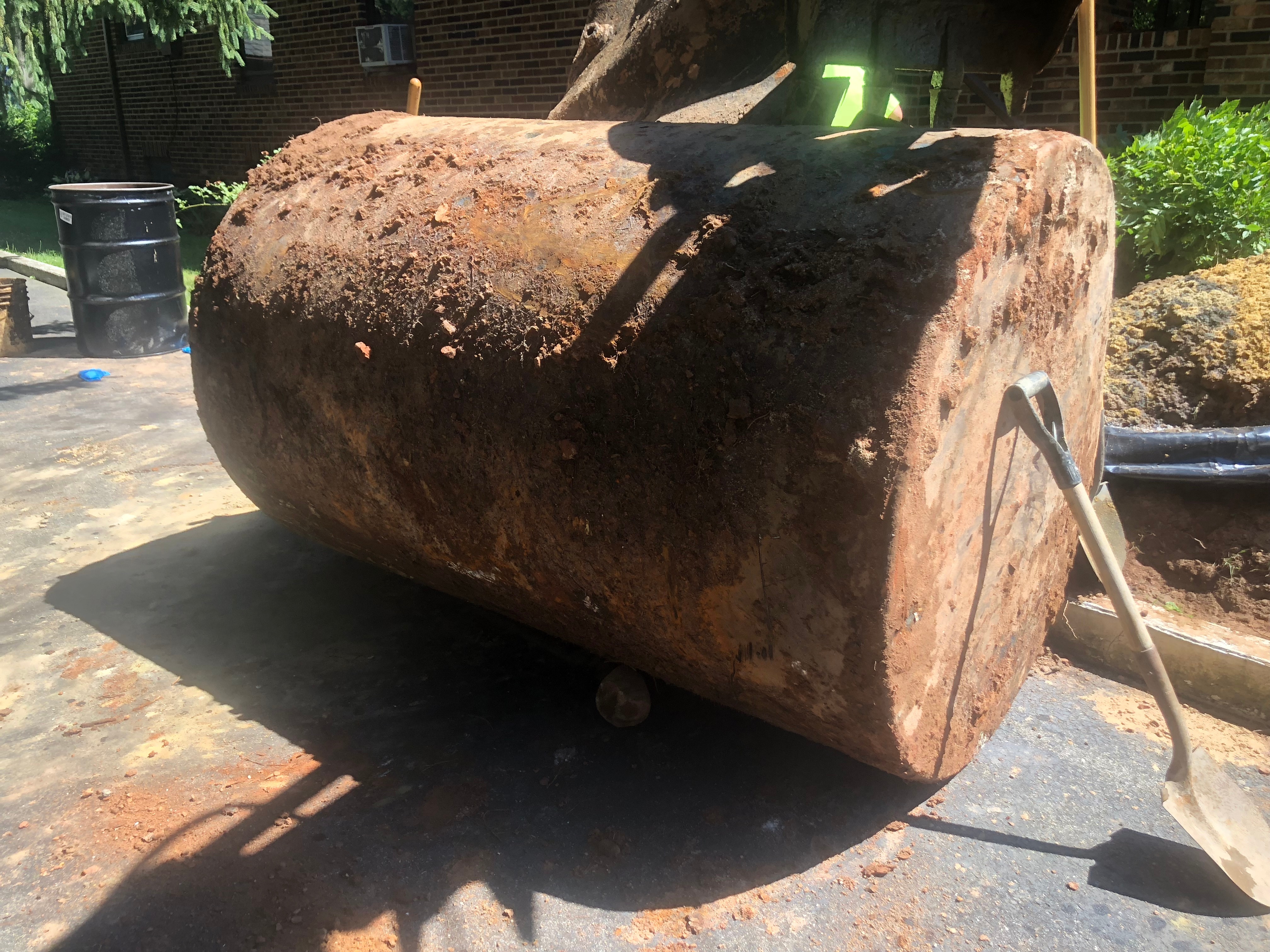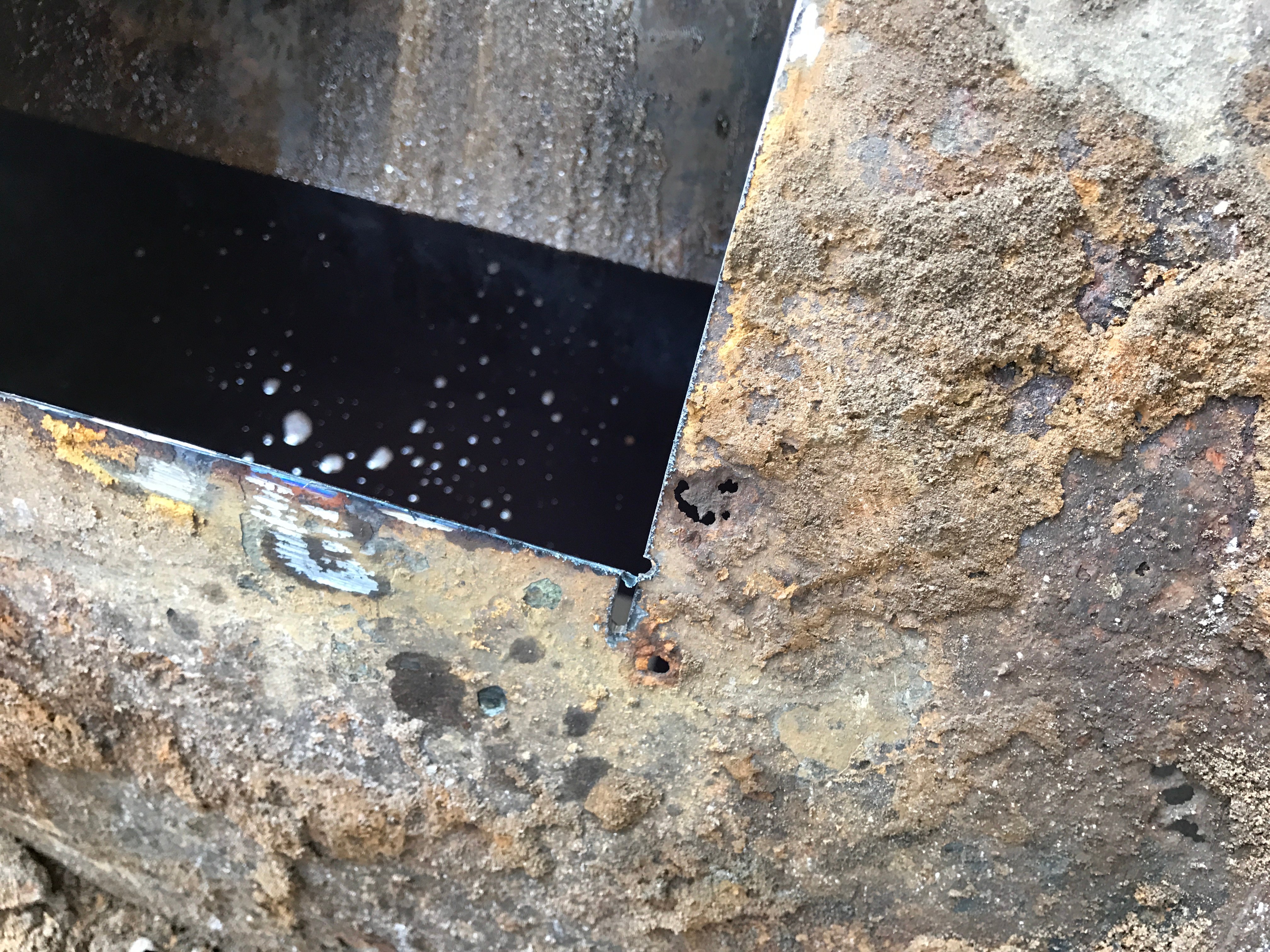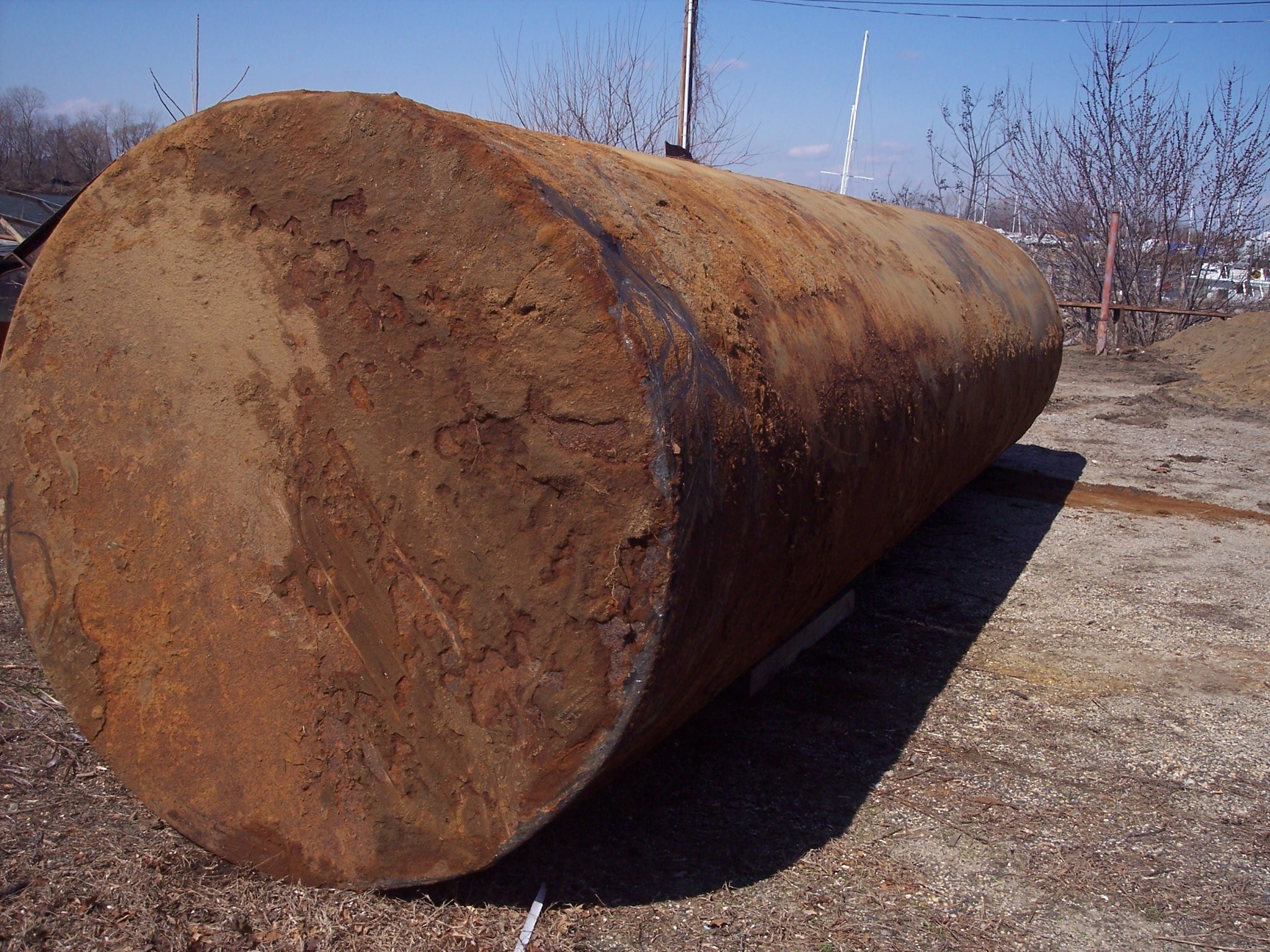Complete Guide For Homeowners: Why Underground Oil Tanks Are a Growing Concern
If you're buying or selling a home, there's a good chance you've encountered the common oil tank question, "Was there an oil tank on this property?". Oil tanks from the early 1900s through the 1980s were installed long before the EPA and State DEPs were established, meaning environmental regulations weren't part of the equation.
Today's reality? Any oil tank can leak, and cleanup costs fall squarely on the property owner at the time of removal.
The Hidden Risk of Oil Tank Leaks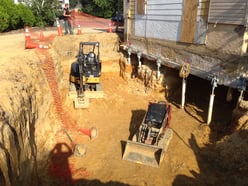
Here's what most homeowners don't realize: many modern oil tanks come with just a three (3) year warranty. There are tanks with longer warranties for sure, but a ten year warranty on a 12 year old tank, is well out of warranty. If your tank is older, it is likely well past its expected lifespan. Leaks typically occur along the bottom, where corrosion is worst, and exactly where you'd never notice them. A few drips here and there go completely undetected.
The Real Estate Reality Check
Trying to sell a house with an old oil tank? Buyers, their attorneys, and realtors all know the risks. We've seen sales fall through multiple times or homes sit on the market for six months or more before sellers accept that oil tanks are not selling features. Unlike walk-in closets and open floor plans, underground oil tanks often deter buyers from making an offer.
The Cheapest Quote Isn't Always the Best Deal
When it's time to remove your tank, it's tempting to go with the lowest bid. But here's the truth: the cheapest price often includes the worst service, and you'll end up paying more in the end 90% of the time.
Many budget contractors won't discuss potential issues because they don't want to "scare" you—and honestly, most homeowners don't want to hear it either. But this lack of preparation leads to expensive surprises.
What Every Oil Tank Removal Contract Must Include
 1. Soil Sampling and Testing
1. Soil Sampling and Testing
Why Sampling & Testing matters. Just like cholesterol, you can't know contamination levels without testing.
Soil samples cost around $130 each (depending on the size of the tank, it could be 2-5 samples) and should always be included with tank removal. Getting samples while the equipment is already on-site is far cheaper than returning later, which can cost thousands. Testing is especially critical when a previously unknown tank is discovered during a tank sweep.
2. A Clear Plan for Tank Leaks
Let's be realistic: finding holes in a 20, 30, or 50-year-old tank isn't shocking. Your removal company should explain upfront what happens if your tank does or doesn't leak.
Important: If holes are found, your local construction office will flag the tank as a leak and require state reporting. A hole provides "reasonable cause" to believe the tank leaked, putting the burden on you to prove otherwise.
3. Proper Testing If Contamination Is Found
You must test to determine if oil levels are above or below regulatory standards. Skip this step, and remediation will be assumed necessary.
When contamination requires cleanup, the next step is delineation, which is defining the contaminated area's boundaries. Smaller areas are faster and cheaper to address. Larger contaminated zones can extend across property lines or under structures, creating access challenges.
4. A Tank Closure Report
Every tank removal needs documentation. Commercial tanks legally require closure reports submitted to the state, and residential tanks should, too.
A proper closure report:
- Explains the work in plain language
- Documents whether the tank leaked
- Outlines whether remediation is needed (and why)
Having written proof that your removed tank didn't leak is invaluable for future property transactions.
Red Flag: What a Bad Contract Looks Like
Here's an actual scope of work from a company you should avoid:
- Obtain permit
- Call utility markout
- Excavate and expose the tank
- Remove overburden soil and concrete
- Saw cut and clean the tank
- Remove and dispose of the tank
What's missing? Soil sampling. Testing protocols. A closure report. Any mention of what happens if the tank leaks.
This contract assumes perfection and leaves you exposed to massive, unexpected costs.
How to Protect Yourself
The best time to read this is before your tank is removed. If you're planning:
- Choose a contractor who clearly explains all possible scenarios
- Ensure your contract includes soil sampling, testing, and a closure report
- Ask what happens if contamination is found
- Don't let price be your only deciding factor
Already Discovered a Leak?
 If you've already had your tank removed and discovered contamination, professional delineation services can define the problem, develop accurate remediation costs, and provide data you can use to solicit competitive quotes.
If you've already had your tank removed and discovered contamination, professional delineation services can define the problem, develop accurate remediation costs, and provide data you can use to solicit competitive quotes.
The Bottom Line
Oil tank removal doesn't have to be a nightmare. Working with an experienced, transparent contractor who prepares you for all outcomes—and includes proper testing and documentation—protects both your property value and your peace of mind. For more information on buying a house with an underground oil tank click here.


